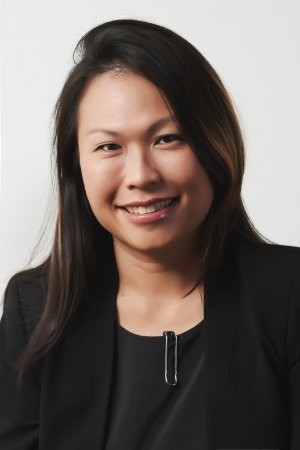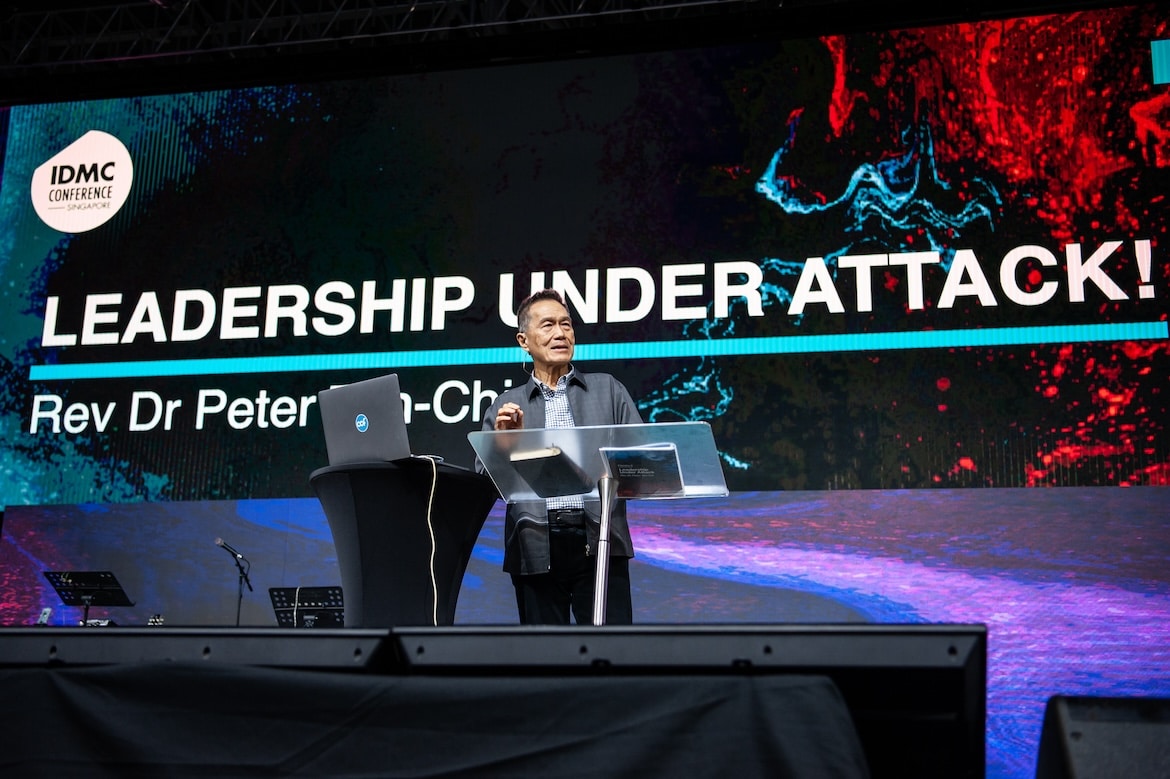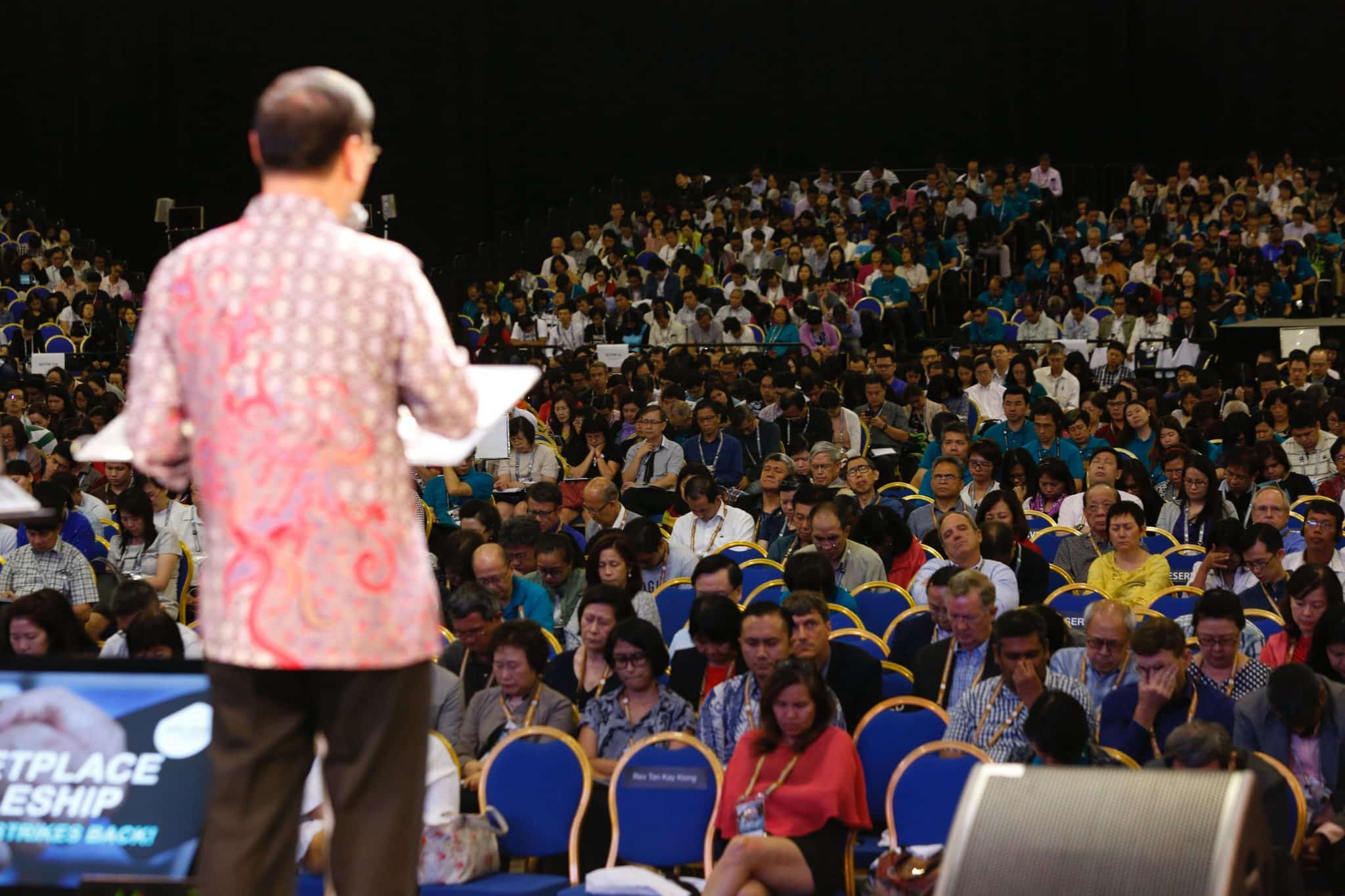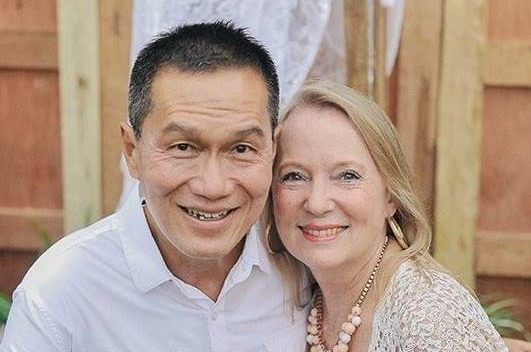Of dancing Africans and missing teeth: How pastors of megachurches lead
Jane Lee // August 1, 2019, 6:59 pm
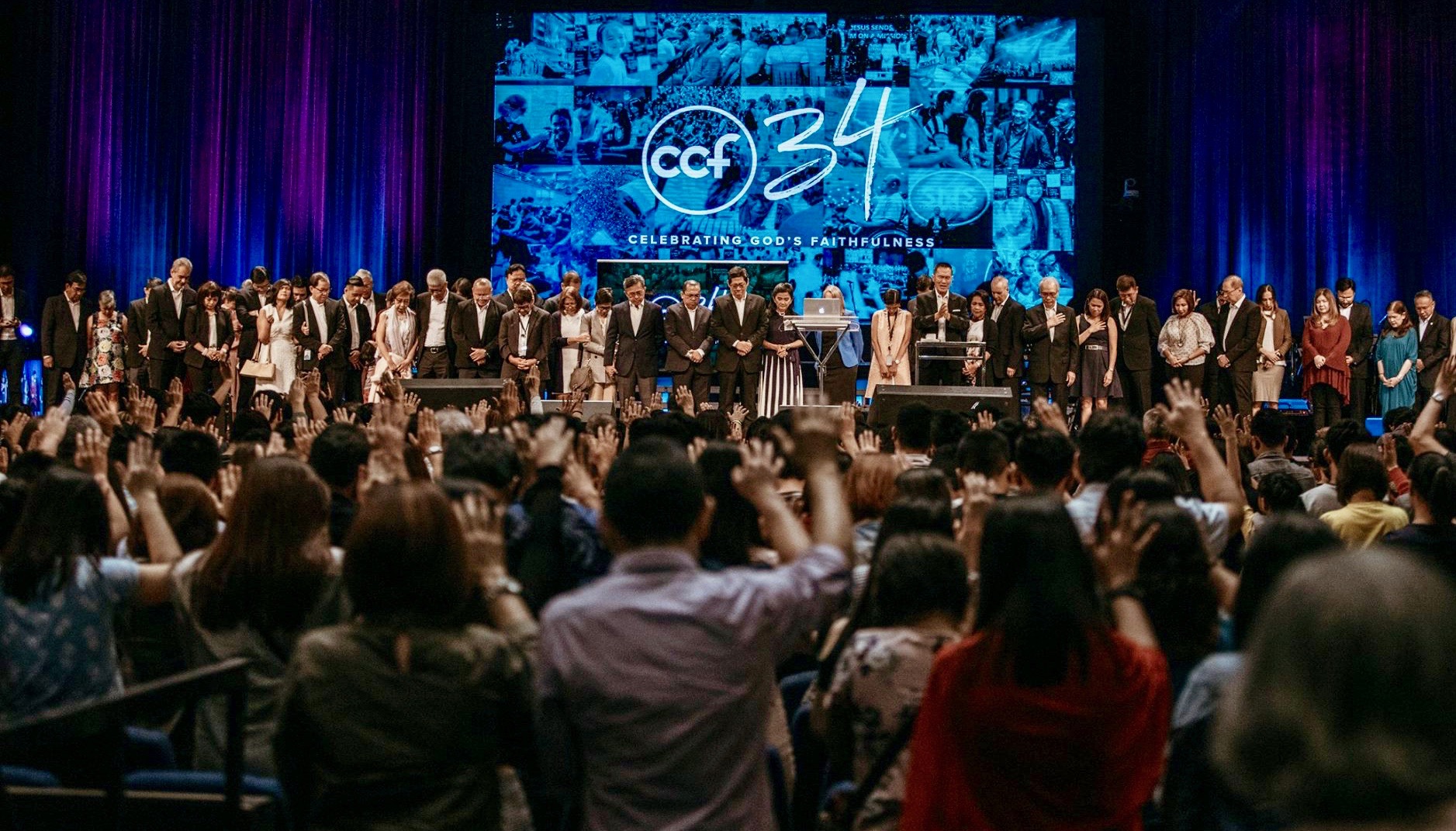
The congregation and pastors of megachurch Christ's Commission Fellowship in the Philippines, celebrating their 34th anniversary in 2018. Photo from https://www.facebook.com/CCFmain/
“What’s the mission of a watch?” The question rang out.
“To tell time!” The group of 200 church leaders replied confidently.
“As leaders, you can’t have too many priorities, or else nothing’s a priority.”
“What’s the mission of the church?” continued Rev Dr Peter Tan-Chi.
The response was now muted, and telling.
With that, the leader of a 60,000-member church in the Philippines incisively laid open one of the key challenges facing the church today.
“That’s the problem everywhere I go – the church mission is not clear,” said the founder and senior pastor of Christ’s Commission Fellowship, a church-planting movement . “Churches have all kinds of programmes, which are wonderful, but they’ve forgotten the principle of clarity of mission.”
Rev Tan-Chi was speaking as part of a panel at a Leading the Church into the Future masterclass at the recent Eagles Leadership Conference 2019.
While the panel was talking specifically to church leaders, the leadership principles they shared were just as relevant for business organisations and even individuals.
Every year, his church would evaluate their activities by asking: What should we continue doing? What should we stop doing?
For example, the lack of focus in one’s mission continues to plague many. If there’s no clarity in your mission, how would you know how to prioritise your limited time, energy and resources?
“As a pastor, you can’t allow the church to get involved in too many things. As leaders, you can’t have too many priorities, or else nothing’s a priority,” said Rev Tan-Chi, who is also the founder and chairman of Axeia Development Corporation, a leading mass housing developer.
That’s why it’s important to say no – even to good things, and even when you might feel guilty, he added. Every year, his church would evaluate their activities by asking:
- What should we continue doing?
- What should we stop doing?
- What should we start doing?
The hardest question? It’s always “what should we stop”, he noted.
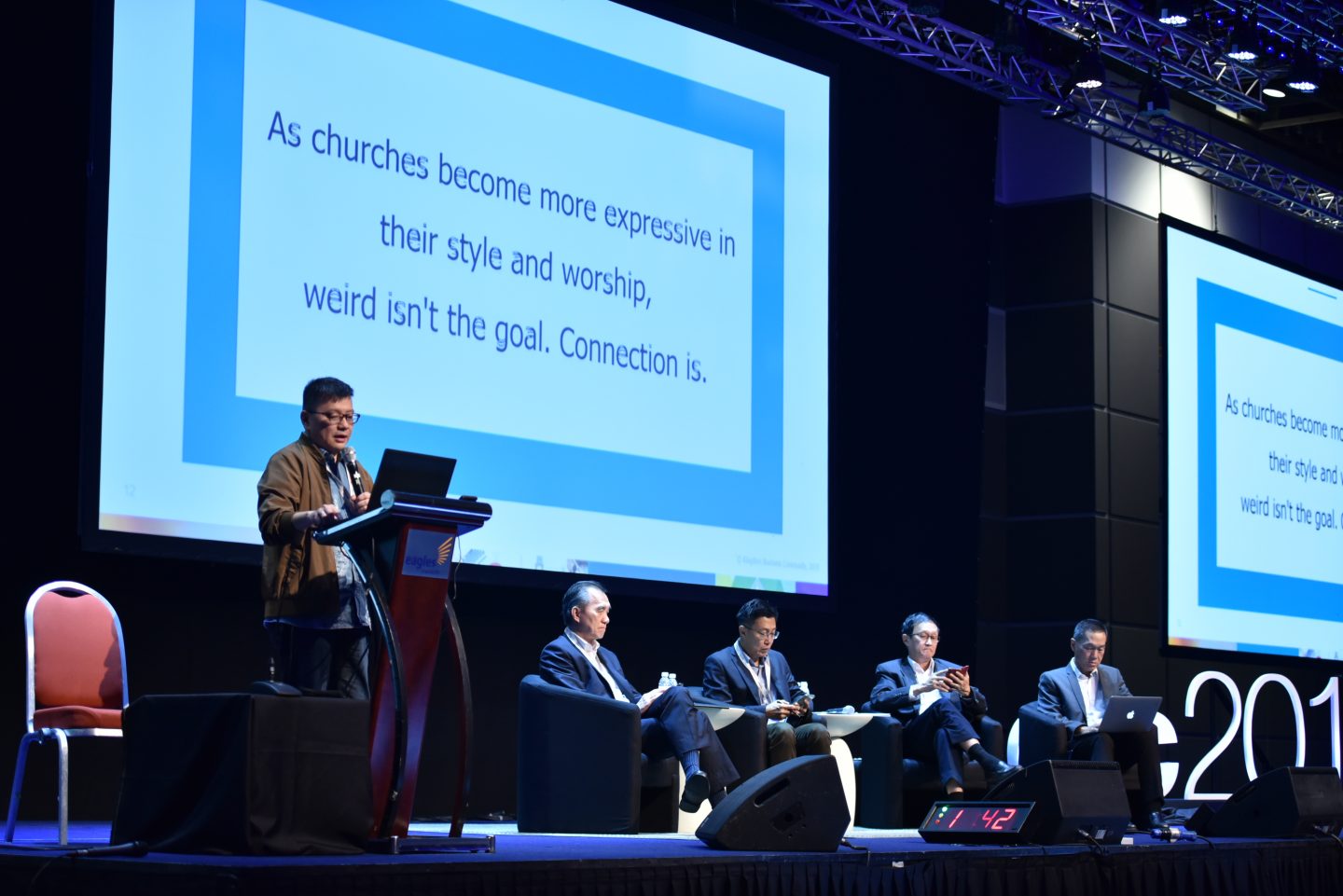
To lead, you need to model radical Christianity and robust discipleship, says the panel of church leaders at a “Leading the Church into the Future” masterclass at the Eagles Leadership Conference. Photo courtesy of Eagles Communications.
Model, model, model
If there was one thing that the speakers kept emphasising during the three-hour session, it was modelling. Be authentic always: If you make a mistake, admit it. Model the behaviour you want your members to have.
For Ps Dato’ Dr Daniel Ho, founding senior pastor of Damansara Utama Methodist Church in Malaysia, evangelism is a lifestyle, not a set of church programmes. And he lives it out wherever he goes.
Model the behaviour you want your members to have.
He recounted a conversation with a hotel chambermaid as she cleaned his room. He told her: “Thank you for cleaning the room. Out of 7 billion people in the world, God sent you to clean my room. You’re very special. How can I pray for you?”
By the end of one minute, the woman was crying, visibly touched by God. And these are conversations he constantly has with people he meets in a taxi or on a plane.
Yet, sometimes, despite the best efforts of a leader, the people still wouldn’t follow, said the pastors.
Referencing a group-influence study which experimented with getting a tribe in Africa to dance, Rev Tan-Chi explained that if the leader dances alone, the rest of the tribe won’t follow. It is only when a “validator” and a third person start dancing that everyone else will begin to do so.
“So who is your No 2 validator? If you want to change the culture of the family, it’s usually the wife. After the wife you need the eldest son. Once they start doing it, the entire clan will follow,” said the father of five and grandfather of 16.
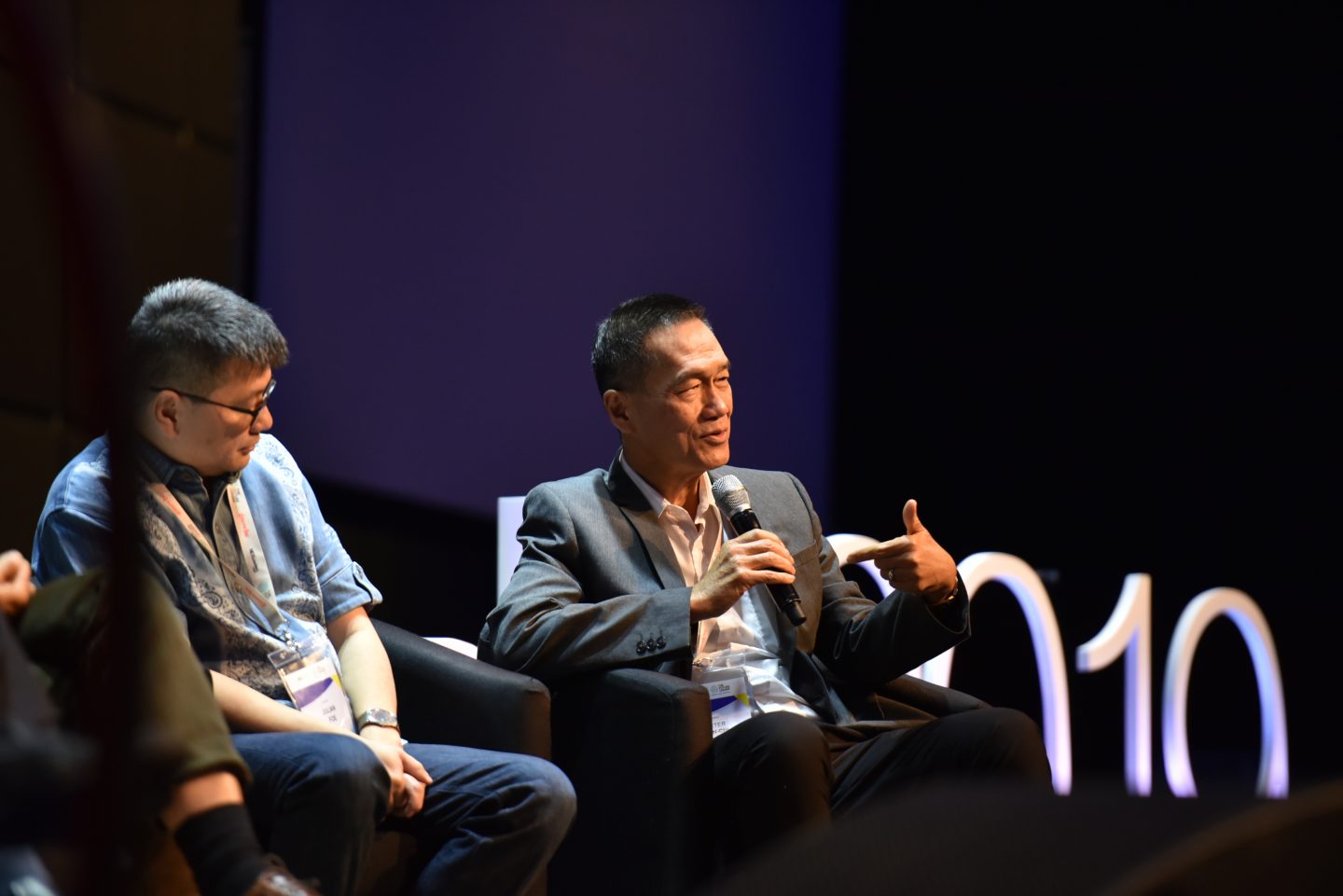
“Know your mission … it’s important to say no – even to good things, and even when you might feel guilty,” said Rev Tan-Chi. Photo courtesy of Eagles Communications.
Five-minute solutions don’t cut it
During the Q&A section, many church leaders wanted to know if there was a curriculum or a methodology they could tap on to transform their church.
The speakers dashed many hopes with their reply.
“Discipleship is not a programme, it’s life on life … You need to have people who are willing to invest time.”
“Discipleship is not a programme, it’s life on life,” said Rev Tan-Chi. “How do you impart life? You need to have people who are willing to invest time.”
It’s also about empowerment, said Bishop Rev Dr James Wong, Basel Christian Church of Malaysia, as he recounted a humorous anecdote where a group of young dentists went to provide dental care at a village in East Malaysia.
On the first day, they extracted 360 teeth. On the second day, it was the same number. Ditto on the third day.
“It suddenly dawned on me that if they continued to go to the village, the villagers will have no more teeth!” he exclaimed amid much laughter.
“When a child comes to you crying and you don’t have your equipment with you, instead of filling their teeth, you extract it. This is a five-minute solution to a problem but you leave a child without a tooth throughout his life.
“Empowerment is to give abilities to other people. It means you staying there and teaching them.”
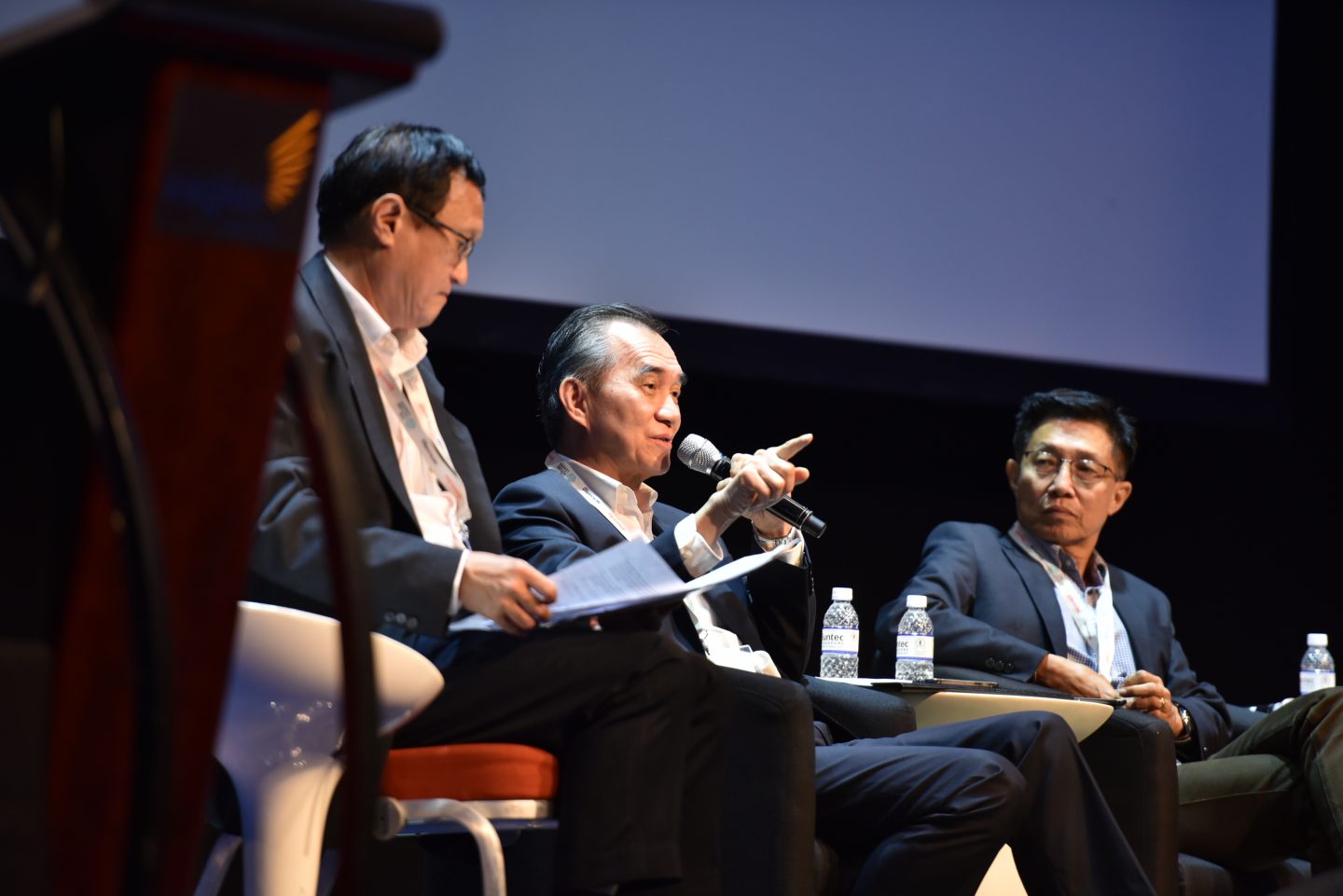
Dr Ho challenged the crowd of church leaders to live out what they preach. Photo courtesy of Eagles Communications.
Transforming a nation
So, what is the answer to Rev Tan-Chi’s question? According to him, it’s to “make disciples”, the “primary verb” in Matthew 28:19-20.
For leaders in the marketplace, it means starting where God has placed you. Julian Foe, managing partner of consulting firm Qando Qoaching, sees them as “bizzionaries”, business people on a mission for God and the common good.
“Empowerment is to give abilities to other people. It means you staying there and teaching them.”
Calling the marketplace the new mission field, he suggested the various influence areas of a bizzionary based on Acts 1:8:
- Jerusalem: Employees + their families
- Judea: Customers + their families
- Samaria: Vendors and suppliers + their families
- Ends of the earth: Competitors, friends, clubs + their families
“You can look at the ROI like this: Employees and their families, maybe 20 times 4, you have 80 people to influence. You have 50 clients, times four, you have 200 to influence,” he explained.
If everyone does this, the ripple effect will have far-reaching magnitude.
“As people are discipled, they are transformed and changed,” said Dr Ho. “And as it goes on and on, that’s how we can impact society and eventually transform a nation.”

Foe sees the marketplace as the new mission field, with employees, customers, suppliers and even competitors being areas that a “bizzionary” can influence. Photo courtesy of Eagles Communications.
“Could Big Data be something evangelical?” challenge visionaries Jeff Cheong and Dr Freddy Boey
We are an independent, non-profit organisation that relies on the generosity of our readers, such as yourself, to continue serving the kingdom. Every dollar donated goes directly back into our editorial coverage.
Would you consider partnering with us in our kingdom work by supporting us financially, either as a one-off donation, or a recurring pledge?
Support Salt&Light